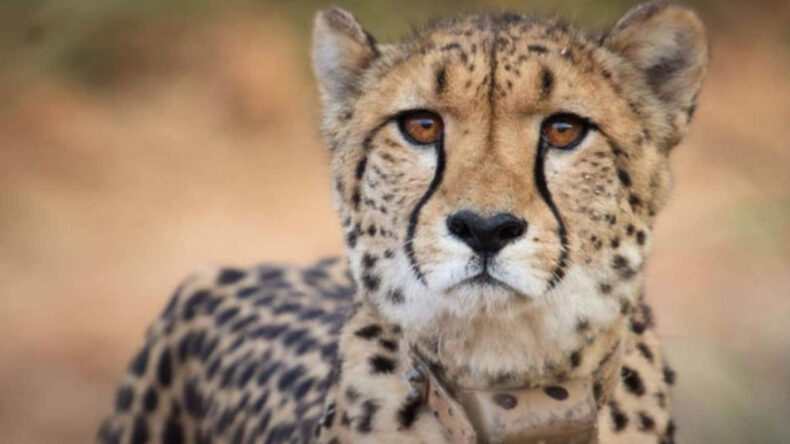An innovative conservation project in the midst of India’s wilderness celebrates its first year anniversary, and it’s been a journey filled with both difficulties and accomplishments. The epic quest to reintroduce cheetahs to India, a species that had gone extinct within its borders, has caught the interest of the entire globe. The effort, led by the Namibia-based Cheetah Conservation Fund (CCF), has encountered challenges but is committed to restoring the cheetah’s presence in India.
The CCF, led by founder Laurie Marker, has been instrumental in supporting Indian authorities with the massive project. Marker’s involvement began in 2009, when plans for the reintroduction were in their early stages. She has made multiple journeys to India over the years, assisting in the development of methods for the cheetah’s successful return.
The path of the project has been nothing short of incredible. It all started with the joy of seeing the first litter of four cubs born to a Namibian female, followed by the arrival of a group of 12 cheetahs from South Africa. Despite these early wins, difficulties occurred that necessitated the animals’ temporary retreat. The disappointments, however, have simply served as excellent learning opportunities, requiring a reevaluation of techniques before the cheetahs are released back into their Indian habitat.
Namibia’s Speaker of the National Assembly and CCF’s International Patron, Peter Katjavivi, expressed delight in Namibia’s contribution in expanding cheetah territory into India. This cross-continental partnership will continue unabated.
The past year has witnessed significant developments in Project Cheetah, India’s ambitious initiative to reintroduce the species. On September 17th last year, Prime Minister Narendra Modi released a group of cheetahs imported from Namibia into an enclosure at Madhya Pradesh’s Kuno National Park, marking the project’s official commencement. Since then, conservationists and experts worldwide have closely monitored the initiative’s progress.
Twenty cheetahs from Namibia and South Africa were relocated to Kuno in two phases, one in September and the other in February. However, the journey has not been without its challenges, as six adult cheetahs have succumbed to various causes since March. In May, three of the four cubs born to a female Namibian cheetah fell victim to extreme heat, leaving only one under human care for future wild release.
SP Yadav, Project Cheetah’s leader, noted unforeseen challenges encountered within the first year. During the Indian summer and monsoon seasons, some cheetahs grew winter coats in preparation for the African winter. Because of this adaption, the animals scratched against tree trunks or the ground, resulting in bruising and exposed flesh. Flies lay eggs in these sites, generating maggot infestations and, eventually, bacterial infections and septicemia, which were lethal. However, vets intervened quickly, delivering preventive drugs and ensuring the animals’ health in preparation for future challenges.
Despite these challenges, there have been remarkable achievements. Cheetahs that have been reintroduced have proven their hunting abilities on native prey species, showing their adaption to the Indian environment. After spending time in captivity in Namibia, two female cheetahs successfully adjusted to the Indian wilderness and began hunting on their own. Their success in the rewilding process suggests that they could be released into the wild shortly.
The absence of human-wildlife conflicts has been a notable accomplishment, with the local residents surrounding Kuno National Park welcoming the cheetahs with open arms. Despite potential dangers from other predators like as hyenas and leopards, cheetahs have successfully reintegrated into their former habitat. This peaceful coexistence of humans and cheetahs is a gratifying part of the project’s success.
Despite successes and setbacks, Project Cheetah remains committed to returning these gorgeous creatures to their natural environment. With the wonderful assistance of the Cheetah Conservation Fund, India’s dream of reintroducing the cheetah to its borders is gradually becoming a reality. The first year was not without challenges, but the project is tenacious and prepared to write a great success story in the conservation of a wonderful species.













